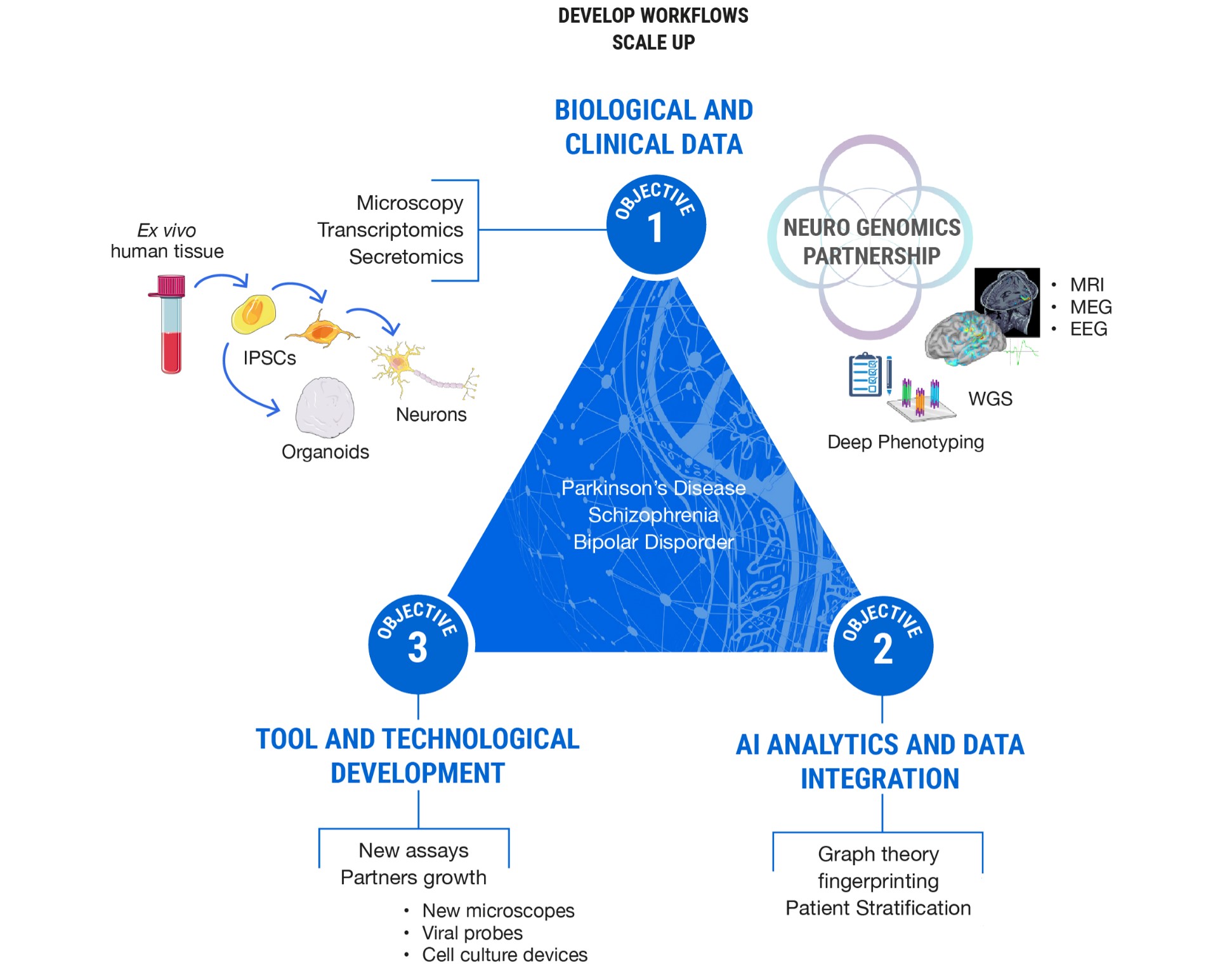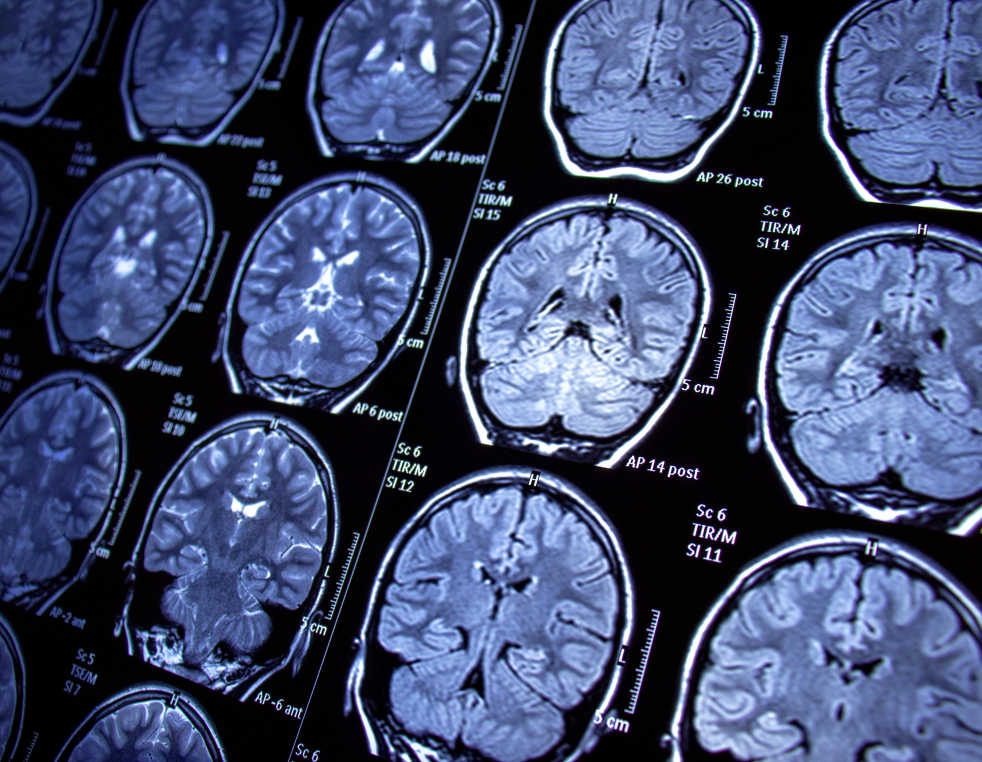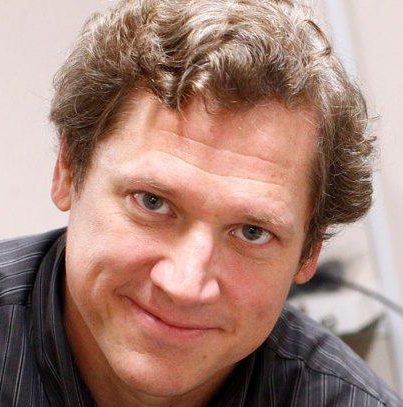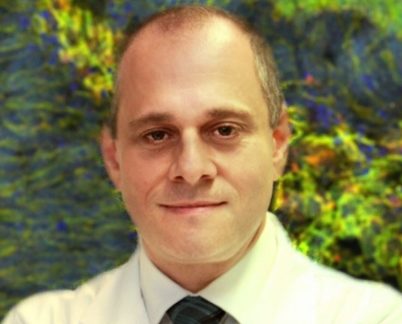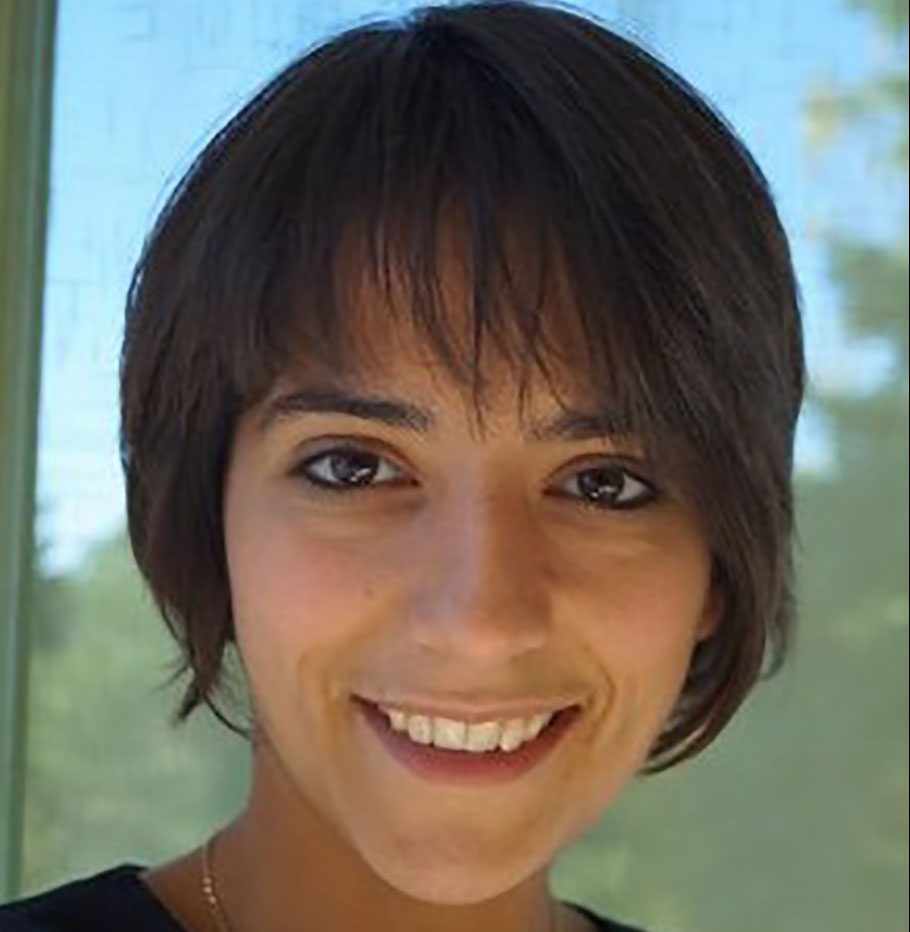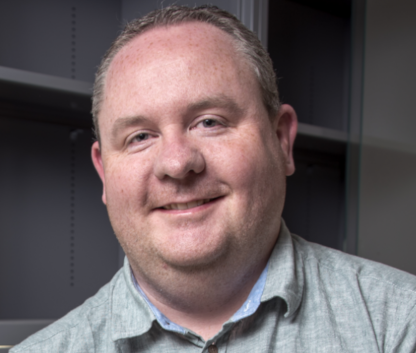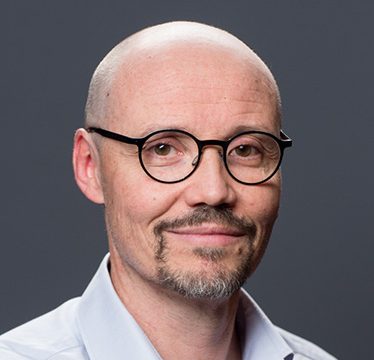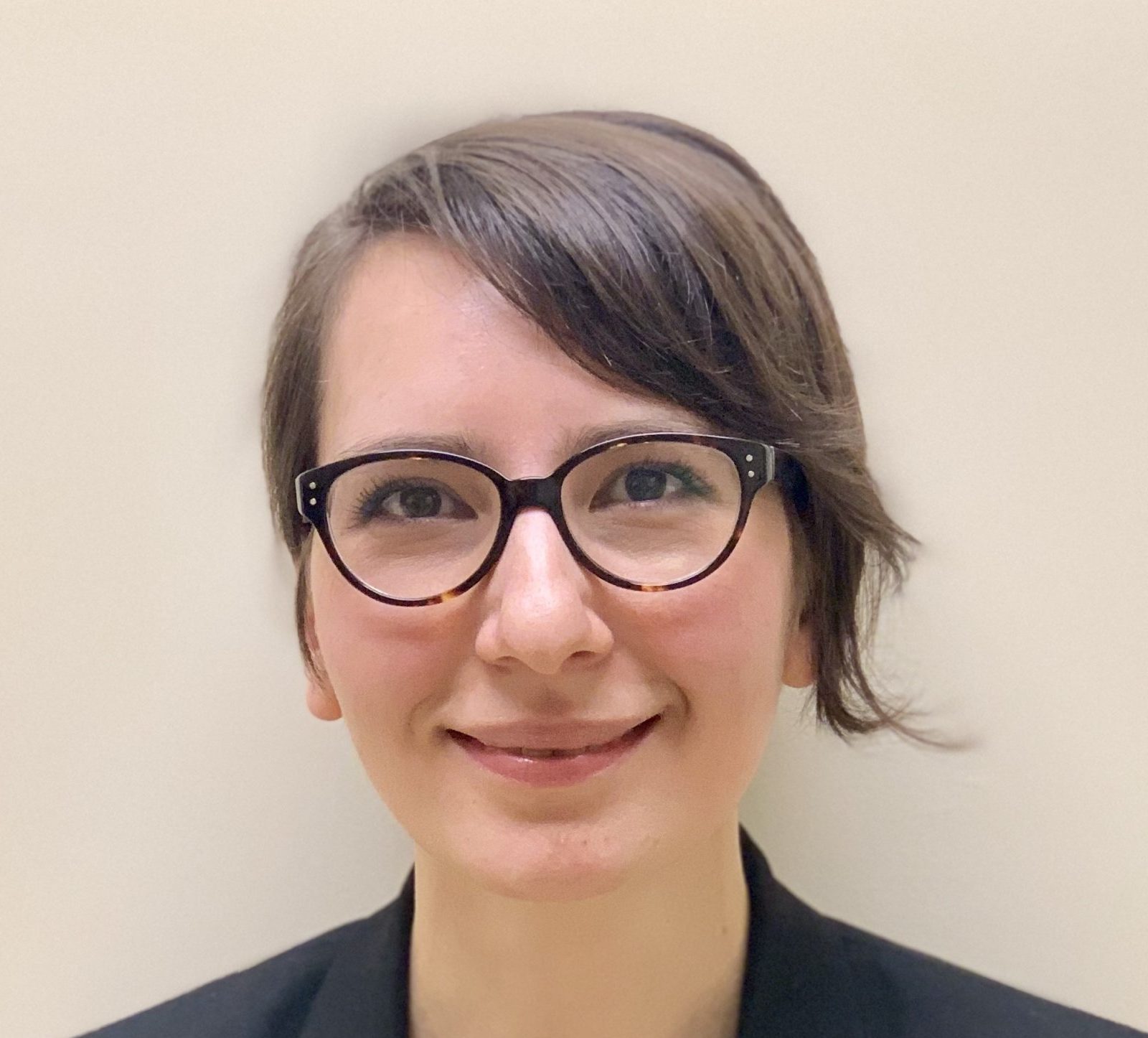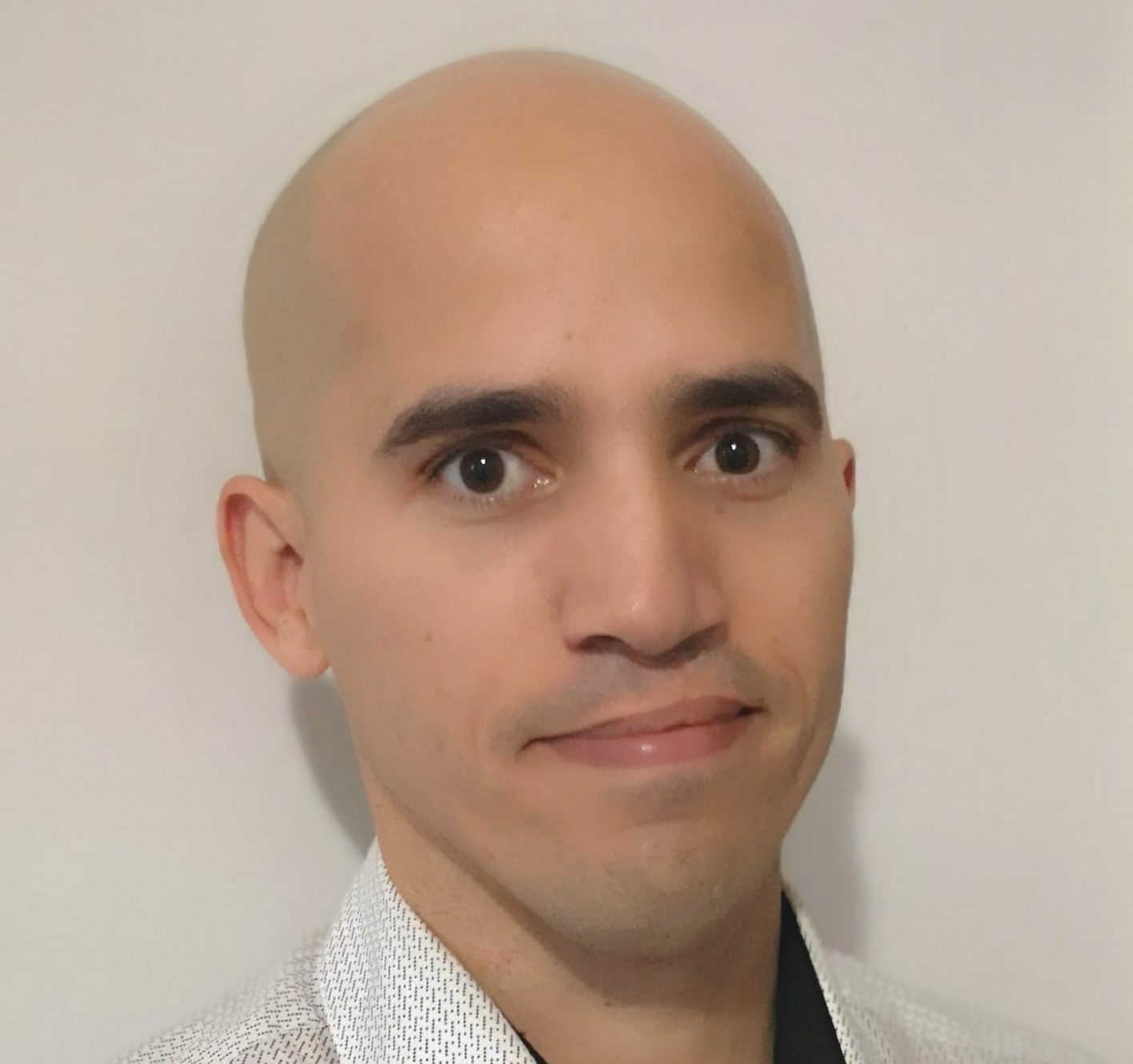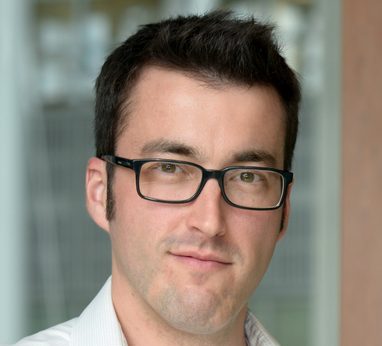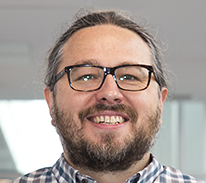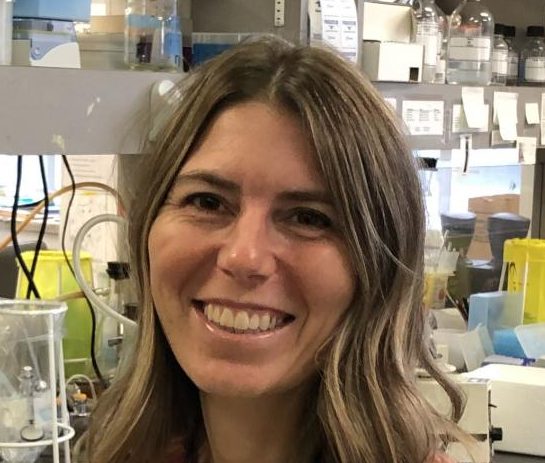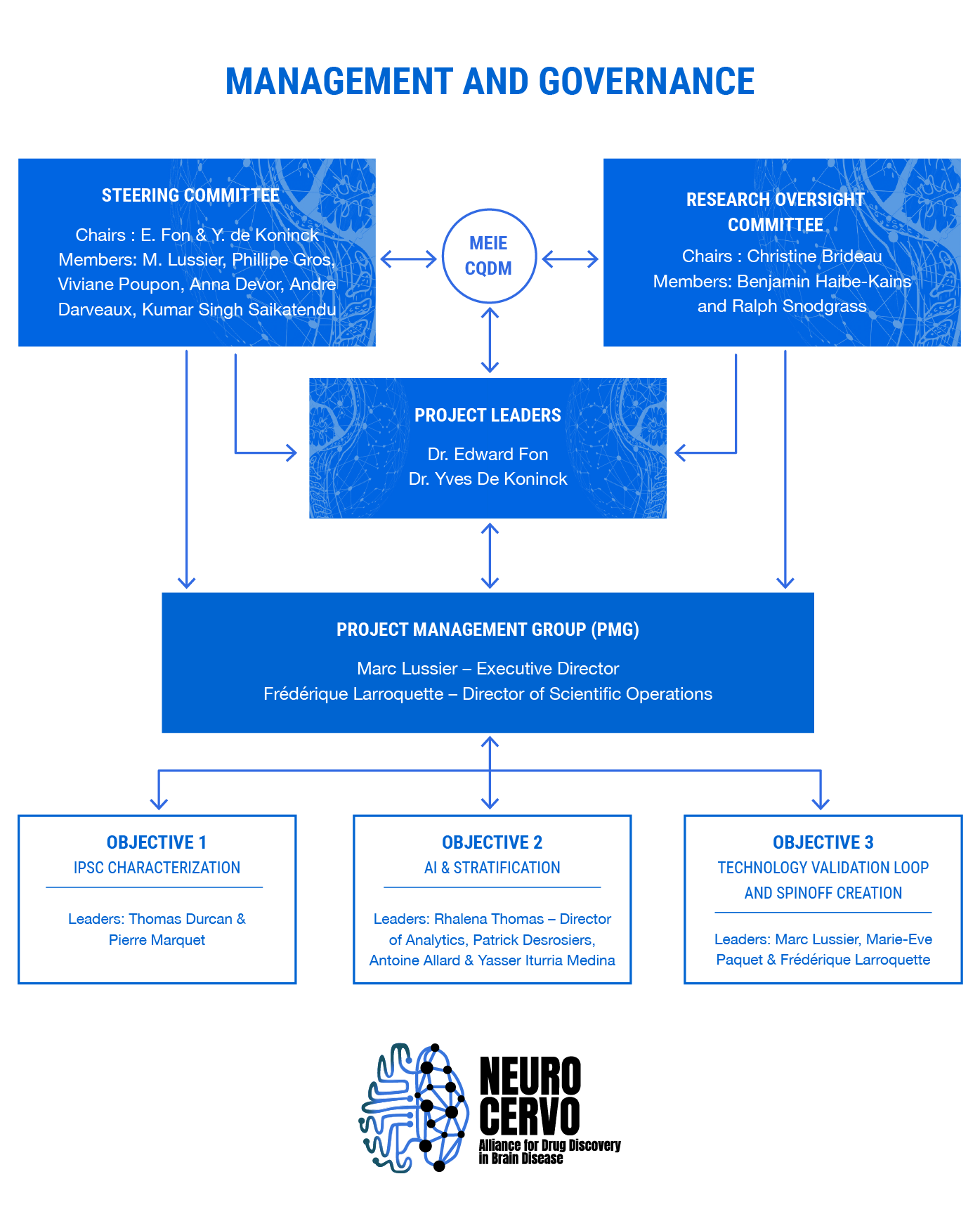OUR VISION

EMBRACING PATIENTS’ HETEROGENEITY TO DEVELOP EFFECTIVE TREATMENTS
More than 80 million of individuals worldwide are affected by either neurodegenerative disorders such as Parkinson’s disease (PD) or major psychiatric disorders, such as schizophrenia (SZ) and bipolar disorder (BP). Without effective treatments, the burden on patients, their families and society will continue to increase in the coming years. Despite decades of research, there are still only limited treatments and no cures available for most brain diseases. In most cases, we do not even know which cellular pathways and molecular targets to prioritize for drug discovery. The main challenges slowing down research are:
- Patients’ clinical, pathological and genetic heterogeneity which may partly explain the failures of past “one size fits all” clinical trials
- The relative inaccessibility of patients’ brain tissue to conduct research on

NCADD INITIATIVE
Through the Neuro-CERVO Alliance for Drug Discovery in Brain Diseases (NCADD) initiative, we want to address these challenges. It is time for research to fully embrace patients’ heterogeneity, and incorporate all aspects of it into our analysis. We decided to carry out a comprehensive characterization of patients, both at the clinical and cellular levels, and use all collected data to stratify them into distinct subgroups. The disease profile of each subgroup can then be studied, guiding us towards biomarker discovery, development of more personalized therapies and targeted clinical trials.

PARTNERS
We are benefiting from our multiple partners’ expertise to characterize patients’ samples with cutting-edge tools and techniques. As part of NCADD, we want to contribute to making Quebec a leader in the life sciences field, by helping our local partners further develop their technologies through feedback loops and collaboration.
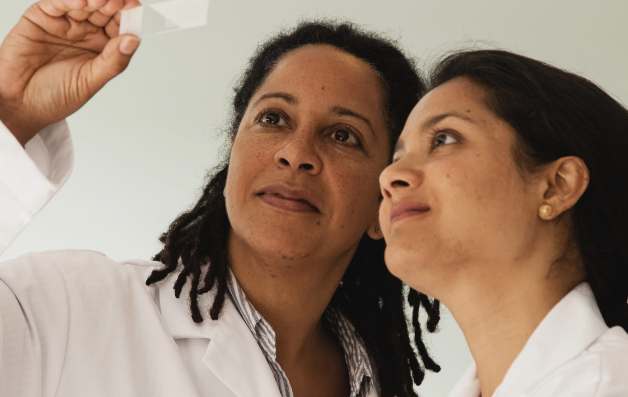
OPEN SCIENCE POLICY
As we believe in enabling breakthroughs through transparency and accessibility of results, all resources are developed within a collaborative Open Science environment.
